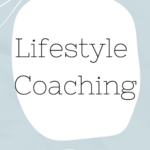How to be less Reactive

Reactivity is acting in response to every circumstance thrown your way instead of responding, or not responding, intentionally. An example of reactivity is screaming at a car that cut you off on the highway instead of taking a deep breath and moving on with your day. Reactivity served our ancestors well while fighting to survive thousands of years ago. However, in our modern world it’s rarely beneficial. While acknowledging that reactivity doesn’t serve you, it’s important to note there is nothing wrong with you if you do respond reactively. We’re instinctually wired to want to react immediately to perceived threats. The problems arise when a perceived threat such as a wolf charging you is handled with the same thought process as the threat of your boss chastising you. When running from something trying to eat you, every second is precious. In that situation, you don’t want to waste time debating how you should respond. In that instance, reactivity could save your life. In our modern world however, thought out decisions better serve us. How to be less reactive you ask? By being reflective.
We combat reactivity by strengthening our reflection muscle. Intentional reflection is a skill. I would argue it is the best tool in your self-growth tool box. When faced with the option to react or reflect, first reflect. Reflection allows you to evaluate a situation for all that it is, to learn from it and make sure you react in a way of your choosing, not in a way some external event has led you to react. When we’re reactive, we’re making decision on pure emotion. We are not thinking things through, not considering the consequences of our actions. This is when you can do or say something you may regret later. This is when you are unable to see situations objectively. Emotions, while useful, can cloud our judgment. We’ve all been in situations where we reacted impulsively and later regretted it. Here are 5 steps on how to be less reactive:
- The 10 second rule. Before jumping into action as soon as something happens, take time to think. At first this is hard, especially when emotions are high. Start out with counting backwards from 10 while taking deep belly breaths before speaking.
- Put space between yourself and the situation. 10 seconds are a great place to start, but the more you hone in on your reflection practice the more you’ll be able to separate yourself from the event. This separation can come in the form of physical or mental separation. Physical separation can look like going into another room or on a walk to collect your thoughts before you respond. Mental separation can look like taking deep breaths and weighing out the consequences of your actions before reacting. Separation from the situation allows you to separate your values from your emotional egotistical mind.
- Witness, without judgment, how a circumstance makes you feel. Explore why you feel that way. For example: If your partner forgetting to take out the garbage makes you feel angry, examine why you feel angry. Ask yourself if you’re really angry about the garbage or if there are there deeper issues you need to communicate such as resentment over unequal household chores.
- Before responding, ask yourself if how you are about the respond is aligned with your values and/or if it is going to bring you closer to your goals.
- Extend yourself grace. It takes time to become less reactive. It’s not something that happens overnight. It takes practice. Don’t judge yourself when you respond reactively. Instead, ask yourself how you can be less reactive in the future. Reflect on the reactive moment and learn what it was that made you respond reactively instead of intentionally. Don’t judge yourself. We are all humans. Mistakes are great opportunities for growth.
If you want to learn more about how to be less reactive, sign up for coaching with me. During our sessions, we will hone in on how to be less reactive. You’ll learn skills that will help you respond in ways that are aligned with your values, ways that will leave you feeling good. We’ll learn why certain situations leave you more reactive than others. We will practice reacting in ways that are aligned with who you wish to be. You will no longer be a victim of circumstance. You’ll have a new empowered mindset. You are capable and in control of the way you respond to every situation life throws your way.
